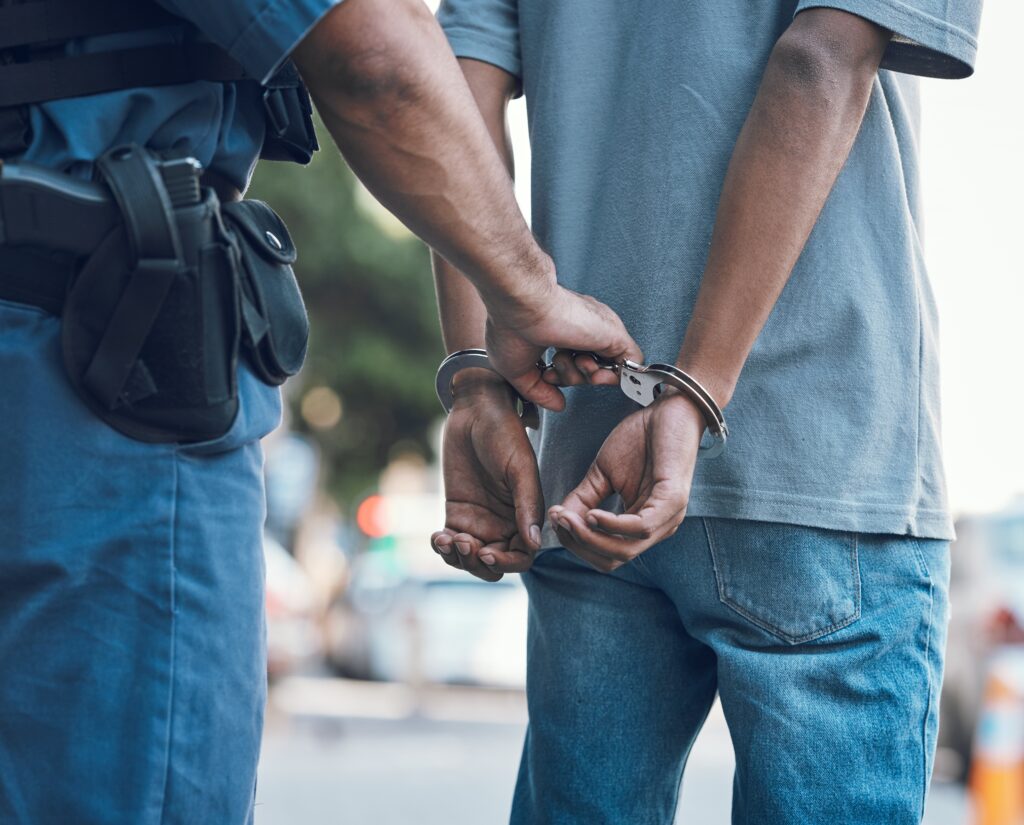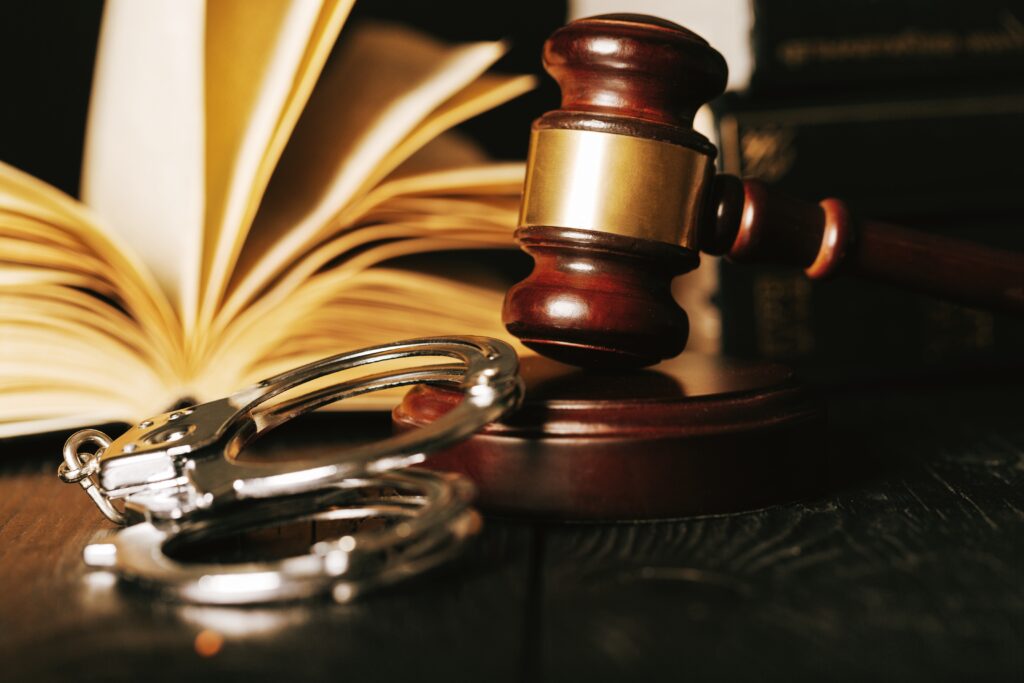Many times, when a police officer arrests a person or takes them into custody, they may begin an interrogation. During a police interrogation, you might feel obligated to answer police questions. However, you should always refrain from talking about the circumstances leading up to your arrest or the alleged offense, as it can only harm your situation.
Ideally, you want to have a knowledgeable criminal defense attorney present with you during this time. A trusted defense lawyer can begin representing you during an arrest, even if no charges have been issued.
A knowledgeable criminal defense lawyer in Los Angeles can safeguard your legal rights at every stage of criminal proceedings. If you eventually face charges, your attorney can represent you in court, advocate for your rights, and pursue a favorable outcome in your case.
What Happens During a Police Interrogation?
During a formal police interrogation, a suspect is brought into a room where detectives or officers question them about a crime they allegedly committed. The room is often small and bare, with a table and chairs. The atmosphere can be tense, with the suspect feeling anxious or intimidated.
Before the interrogation begins, the suspect is typically read their Miranda rights, which include the right to remain silent and the right to an attorney. This is to ensure that the accused understands their legal rights before being questioned.

The detectives or officers leading the interrogation will usually start by asking the suspect basic questions, such as their name, address, and other personal information. This is done to establish a rapport and make the suspect feel more comfortable before delving into more serious matters.
As the interrogation progresses, the questions become more focused on the crime at hand. The detectives may present evidence or witness statements implicating the accused, and they may use various tactics to try and elicit a confession.
During the interrogation, the accused may be subjected to psychological pressure, such as threats or promises of leniency, in an attempt to get them to confess. However, police officers are not allowed to use physical force or coercion to obtain a confession.
Throughout an interrogation, the accused has the right to remain silent and the right to request an attorney. If they choose to exercise these rights, the interrogation must stop immediately until they have the opportunity to consult with their attorney.
Interrogations can last for hours, with detectives using various techniques to try to break down the suspect’s defenses and extract information. However, not all interrogations result in a confession, and some suspects maintain their innocence throughout the process.
Once the interrogation is complete, the detectives will review their notes and any recordings of the interview to determine the next steps in the investigation. This may include gathering additional evidence, interviewing witnesses, or pursuing other leads.
If a police officer questions you as part of a formal interrogation, you need to invoke your Miranda rights and that you request the presence of legal counsel.
How Can You Avoid Self-incrimination During a Police Interrogation?
Avoiding self-incrimination during a police interrogation is crucial to protecting your rights and ensuring a fair legal process. Here are some tips to help you navigate a police interrogation without incriminating yourself:
- Know Your Rights – Before the interrogation begins, understand that you have the right to remain silent and the right to an attorney. Exercise these rights by clearly stating that you wish to remain silent and that you want to speak with a lawyer before answering any questions.
- Stay Calm and Composed – The atmosphere during a police interrogation can be intimidating, but it’s important to stay calm and composed. Avoid reacting emotionally to the questions or tactics used by the police. Take deep breaths and focus on maintaining your composure.
- Be Mindful of Your Words – Choose your words carefully during the interrogation. Avoid making statements that can be interpreted as admitting guilt or implicating yourself in the crime. Stick to simple and concise answers, and do not elaborate or provide unnecessary information.
- Ask for Clarification – If you don’t understand a question or if you’re unsure how to answer, don’t hesitate to ask for clarification. It’s better to seek clarification than to give a response that may be misunderstood or misinterpreted.
- Assert Your Rights – If the police continue to pressure you to answer questions or to waive your rights, assert your rights firmly and respectfully. Repeat that you wish to remain silent and that you want to speak with a lawyer before proceeding with the interrogation.
- Avoid Making False Statements – Lying to the police during an interrogation can have serious consequences and may further incriminate you. It’s better to remain silent than to provide false information.
- Don’t Consent to Searches – If the police ask for your consent to search your person, belongings, or property, know that you have the right to refuse. Refusing consent does not imply guilt and is a way to protect your privacy and legal rights.
- Stay Patient – Police interrogations can be lengthy, but it’s important to remain patient and persistent in asserting your rights. Remember that you are entitled to legal representation and that you have the right to end the interrogation at any time.
By following these tips, you can protect yourself from self-incrimination during a police interrogation and ensure that your rights are upheld throughout the process.
What Happens if the Police Make a Mistake During an Interrogation?
When a police officer makes a mistake during an interrogation, it can have serious consequences for the accused person. Mistakes can include not properly advising the accused of their legal rights, using coercive tactics to extract a confession, or mishandling evidence.

One potential consequence of a mistake during interrogation is that any evidence obtained as a result of the mistake may be deemed inadmissible in court. This means that the prosecution would be unable to use the evidence against the accused person. For example, if a confession was obtained through coercion or without the suspect being properly informed of their rights, a defense attorney can argue that the confession should be inadmissible in court (in other words, thrown out).
Another potential consequence is that the credibility of the police officer – and the entire investigation – may be called into question. If the police acted improperly during the interrogation process, it may cast doubt on the reliability of other evidence that law enforcement gathered. This can weaken the prosecution’s case and make it more difficult for them to prove the accused person’s guilt beyond a reasonable doubt.
In court, there are several legal defenses that a criminal defense attorney can raise if a police officer makes a mistake during an interrogation. One defense is that the confession or evidence obtained as a result of the mistake was coerced or involuntary. This defense argues that the accused person only confessed or provided evidence because the police officer pressured or threatened them.
Another defense is that the police violated the accused person’s constitutional rights during the interrogation process. For example, if the police failed to properly advise the suspect of their Miranda rights before questioning them, any statements made by the suspect during the interrogation may be suppressed.
Additionally, a defense attorney may argue that the police engaged in misconduct or acted in bad faith during the interrogation. This can include tactics such as lying to the suspect, withholding exculpatory evidence, or using physical force or intimidation.
Overall, if a police officer makes a mistake during an interrogation, it can have significant implications for the outcome of a criminal case. An experienced criminal defense lawyer can carefully scrutinize the actions of law enforcement and raise any relevant legal defenses on your behalf in court.
What Happens if the Prosecution Can't Use Evidence from a Police Interrogation at Trial?
When the prosecution can’t use evidence from a police interrogation at trial, it can seriously affect their case. This may happen if the evidence was obtained improperly or if the suspect’s rights were violated during the interrogation process.
One consequence of being unable to use this evidence is that it weakens the prosecution’s case. Evidence from a police interrogation is often crucial in proving the guilt of the accused person. Without this evidence, the prosecution may struggle to convince the jury – beyond a reasonable doubt – that the accused actually committed the crime they are charged with committing.
Another consequence is that the prosecution may have to rely on other evidence to make their case. If they can’t use evidence from the interrogation, they may need to find other ways to prove the accused person’s guilt. This can include presenting other witness testimony, physical evidence, or circumstantial evidence.
If the prosecution can’t use evidence from a police interrogation at trial, it may also affect plea negotiations. Without strong evidence to support their case, the prosecution may be more willing to offer a plea deal to the accused person. A plea deal is an agreement between the prosecution and the defense where the accused person agrees to plead guilty to a lesser charge in exchange for a lighter sentence. Without the evidence from the interrogation, the prosecution’s bargaining power in plea negotiations may be diminished.
In some cases, if the prosecution can’t use evidence from a police interrogation, it may lead to a complete dismissal of the charges against the accused person. If the remaining evidence is not enough to support a conviction, the prosecution may decide to drop the charges altogether.
A criminal defense attorney in your area can determine whether evidence from a police interrogation may be subject to suppression at your criminal court trial.
How an Experienced Criminal Defense Attorney Can Help with Your Case
At a criminal court trial, both the prosecution and the defense present their cases to a judge and jury to determine the guilt or innocence of the accused person. The trial proceeds in several stages, including jury selection, opening statements, presentation of evidence, witness examination and cross-examination, closing arguments, jury deliberation, and finally, the verdict.

During a trial, a criminal defense attorney plays a crucial role in advocating for the accused individual’s rights and ensuring a fair legal process. When it comes to a police interrogation, an experienced defense attorney can provide invaluable assistance in several ways:
- Legal Knowledge and Expertise – A criminal defense attorney is trained in the law and knows the rules and procedures of the criminal justice system. They can identify any legal issues or violations that occurred during the police interrogation and raise them in court. For example, if the police failed to properly advise the suspect of their Miranda rights or used coercive tactics during the interrogation, the defense attorney can challenge the admissibility of any evidence obtained as a result.
- Cross-Examination of Witnesses – A defense attorney has the opportunity to cross-examine prosecution witnesses, including police officers involved in the interrogation. Through skillful questioning, they can expose inconsistencies or contradictions in the testimony and cast doubt on the reliability of the evidence obtained during the interrogation.
- Presenting Alternative Explanations – A defense attorney can also present alternative explanations or interpretations of the evidence that the prosecutor presents. They can challenge the prosecution’s narrative of events and offer a different perspective that supports the innocence of the accused person.
- Protecting the Accused’s Rights – Throughout the trial, an experienced criminal defense attorney can ensure that the accused person receives a fair trial, free from coercion, intimidation, or violations of their constitutional rights.
During a courtroom trial, an experienced criminal defense lawyer will use their legal knowledge, advocacy skills, and commitment to justice to defend the accused’s rights and ensure a fair outcome.
Speak with an Experienced Criminal Defense Lawyer about Your Legal Matter Right Away

During a police interrogation that takes place while in custody, individuals should always have an experienced criminal defense attorney present with them.
Following the police interrogation, your attorney can advise you on potential legal defenses to your charge, as well as any other available options – such as pursuing a plea deal from the state prosecutor who is handling your case. Your attorney can also aggressively represent you during all legal proceedings and help you secure the best possible result in your criminal case.